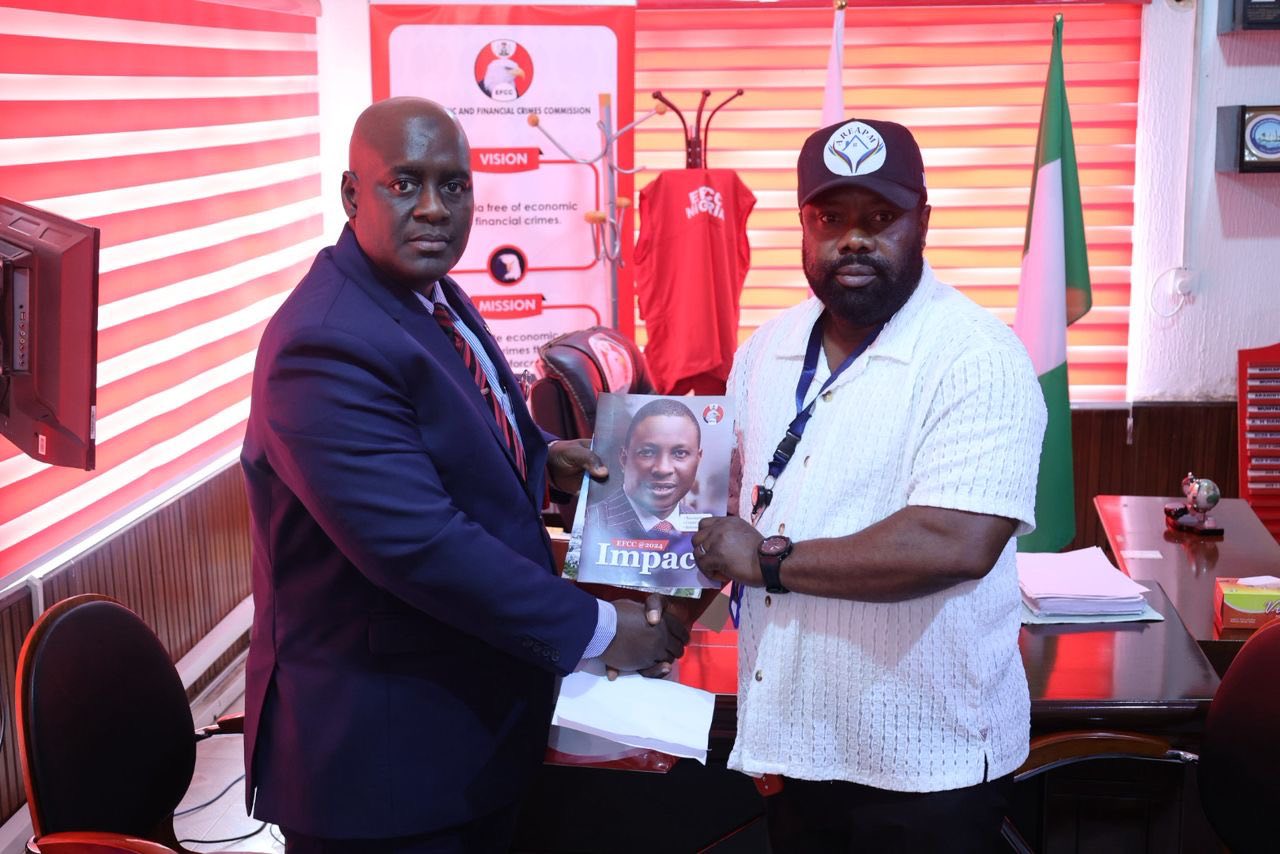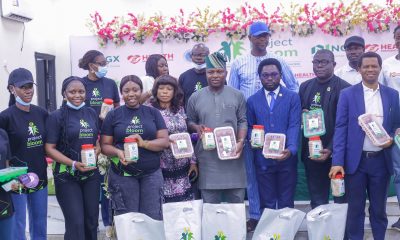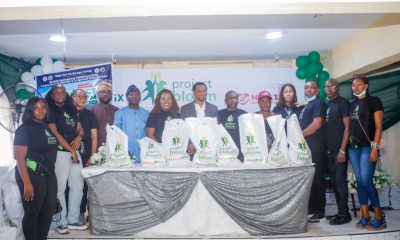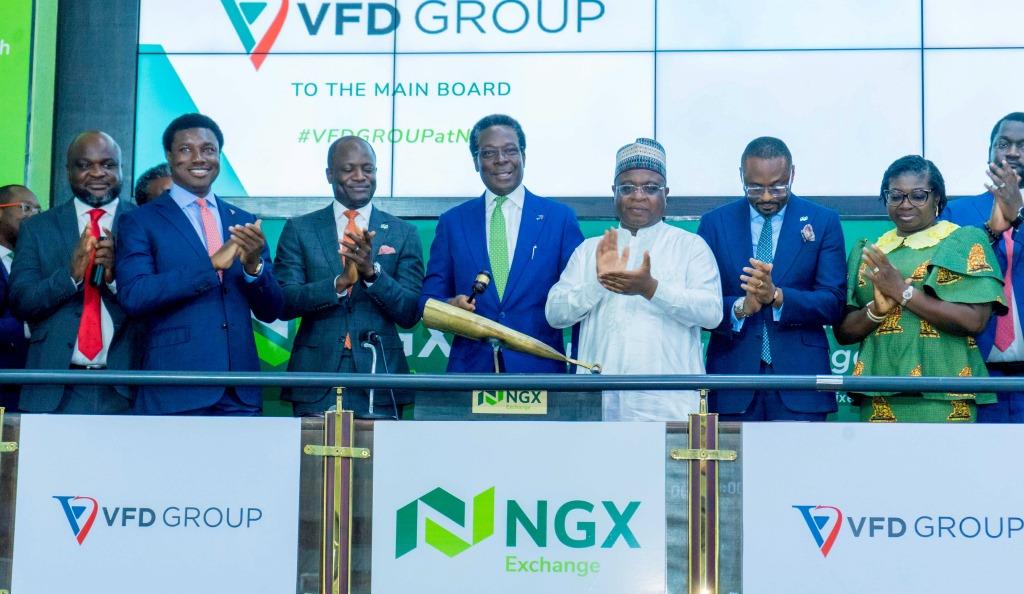General
NGX Group Obtains EDGE Certification

By Aduragbemi Omiyale
The Nigerian Exchange (NGX) Group Plc has been awarded the EDGE certification, becoming the first exchange group globally and the first indigenous organization to be EDGE certified.
NGX Group was certified at the EDGE Assess level, which highlights the progress the company has made on diversity, equity, and inclusion and its commitment to ensuring equal opportunities across its talent pool.
EDGE stands for Economic Dividends for Gender Equality. It is the leading global standard for Diversity, Equity, and Inclusion (DE&I), centred on a workplace gender and intersectional equity approach.
The certification process involved employee surveys, analysis of group-wide workforce statistics, focus group discussions, and a rigorous third-party audit of all data provided by the company and its policies and practices related to diversity, equity, and inclusion.
Commenting on the feat, the Group CEO of NGX Group, Mr Oscar Onyema, said, “We are thrilled to have achieved yet another first in our efforts to promote gender equality and champion Africa’s sustainable development.”
“This certification demonstrates our dedication to creating an inclusive, equitable, and diverse workplace. At NGX Group, we believe that diversity and inclusivity are fundamental to our success.
“With the EDGE certification, we now benefit from being verified against global best standards as we continually measure and benchmark progress around gender equality,” he added.
“From a governance standpoint, commitment to gender equality is not only the right thing to do but the best thing to do, as it drives better business results.
“As a central player in the capital market, we remain resolute in our effort to galvanise the ecosystem for sustainable impact through our wholly owned subsidiaries, Nigerian Exchange Limited (NGX), NGX Regulation Limited (NGX RegCo) and NGX Real Estate Limited (NGX RelCo), and other key stakeholders. This starts with building a workplace that is inclusive and equitable for all our employees,” Mr Onyema further stated.
Kalim M. Shah, IFC’s Senior Country Manager for Nigeria, Liberia and Sierra Leone said, “Stock exchanges play a crucial role in driving gender equality in the private sector, unlocking business opportunities and promoting economic development.
“IFC is pleased to have supported the Nigerian Exchange Group as the first stock exchange globally to attain the EDGE Gender Certification, creating stronger transparency and accountability for its role in championing workplace gender parity in Nigeria, and serving as a model for other exchanges across Africa and globally.”
Aniela Unguresan, Founder, EDGE Certification Foundation, said “Through the certification process, the Nigerian Exchange Group has strengthened its foundation for promoting gender equity in the organization. The attainment of the EDGE Assess Certification is a clear indication of the Nigerian Exchange Group’s commitment to implementing intentional, prioritized, and measured actions towards achieving greater gender equity in the workplace.”
The EDGE certification is globally renowned for its extensive focus on analysing business practices through an impact lens. It lends further credence to NGX Group’s gender leadership in the capital market as it drives impact in partnership with International Finance Corporation (IFC) on the Nigeria2Equal (N2E) project.
The conferment of EDGE Assess has also provided a quantifiable and qualitative outlook to the combined efforts of NGX Group of companies and IFC on closing the gender inclusion gap in the private sector and mainstream more opportunities for women, without leaving men behind. Gender champions under N2E can now follow the lead of NGX Group to enable better conditions for their workforce and push for equitable outcomes.
General
Eyesan Promises Enhanced Transparency, Digital Transformation at NUPRC

By Adedapo Adesanya
The chief executive of the Nigerian Upstream Petroleum Regulatory Commission (NUPRC), Mrs Oritsemeyiwa Eyesan, has promised to enhance transparency and ensure that the NUPRC’s internal communications are fully digital.
Mrs Eyesan said this when the Executive Secretary of the Nigeria Extractive Industries Transparency Initiative (NEITI), Mr Musa Adar, visited the commission’s corporate headquarters in Abuja.
“We have set for ourselves a 60-day programme to digitise our interactions and communications within the commission. I can assure you that once we get to day 60, there will be no paper trail within the Commission. All our transmissions will be electronic, which also means speed is assured. It means we will be able to trace where we have hiccups,” Mr Eyesan said.
The NUPRC boss said digitising processes often leads to better results, like the enforcement of payments of royalties.
“I can tell you without a shadow of doubt that for royalty payments, the default rate was enormous prior to 2025 when the Commission went live on the system. Now, compliance has improved,” Mrs Eyesan said.
The NUPRC boss sought a deepened relationship with NEITI, which will foster transparency, especially amid the 2025 Licensing Round.
In his remarks, the NEITI’s scribe said there was a need for the NUPRC to carry the agency along in its operations as this would not only enhance transparency but also deepen investor confidence.
Mr Adar also urged the commission to be firm on oil companies that run afoul of the Petroleum Industry Act.
Speaking on the Extractive Industries Transparency Initiative, Mr Adar asked that the NUPRC actively participate in the 2026 EITI flagship conference, which will provide the Commission with better insights into the standards that guide EITI implementation.
The NEITI boss also sought support from the Commission in the area of data sharing, which will enhance the operations of the agency.
“We are here to seek understanding, and we must collaborate,” Mr Adar said.
General
Tinubu Tasks Acting IGP Disu to Restore Peace, Strengthen Security Nationwide

By Modupe Gbadeyanka
The acting Inspector-General of Police (IGP), Mr Tunji Disu, has been charged to do everything within his powers to restore peace and strengthen security across the nation.
This task was given to the new police chief by President Bola Tinubu after being decorated at the State House in Abuja on Wednesday.
Mr Disu was chosen to succeed Mr Kayode Egbetokun on Tuesday. His appointment is expected to be approved by the Nigeria Police Council and confirmed by the Senate next week.
President Tinubu described Mr Disu’s appointment as coming at a critical moment, urging him to rebuild public confidence in the police’s capacity to do their job in collaboration with other security forces.
“I made this decision for you to assume this responsibility. I know your record. I saw the dedication you exhibited while you were in Lagos when I was governor,” the President said.
“Lead firmly but fairly, demand professionalism at every level and ensure that the safety of lives and property remains our highest priority. It’s a daunting challenge. I know you can do it. You have my word, you have my full support,” he added.
Mr Tinubu urged him to advance the security pillars of his administration’s Renewed Hope Agenda. He expressed confidence in the Acting IGP’s discipline, operational experience and leadership capacity.
“Nigeria is challenged with banditry, terrorism and other criminal activities. You will be part of the thinking and innovation to overcome them,” the President said, reaffirming his belief that Nigeria would prevail under a committed leadership.
The President also paid tribute to Mr Egbetokun, who was present with his spouse, saying, “We are a grateful nation. Nigeria appreciates your contribution to maintaining law and order.”
He urged Egbetokun to be ready to offer useful advice to his successor and wished him and his family peace, good health and success in future endeavours, noting,
“You have not succeeded without a good successor. His success will also be part of your legacy.”
Mr Tinubu urged all security stakeholders to work collectively to safeguard lives and property during this critical period.
General
Real Estate Sector Now Safe Haven for Fraudsters—EFCC

By Modupe Gbadeyanka
The chairman of the Economic and Financial Crimes Commission (EFCC), Mr Ola Olukoyede, has lamented how “people now defraud the government and individuals and invest in real estate.”
He raised this concern when he received the executives of the Association of Real Estate and Property Managers (AREAPM) in Edo State on Wednesday.
The EFCC chief, represented by the acting Zonal Director and Deputy Commander of the Commission, Mr Sa’ad Hanafi Sa’ad, warned real estate managers against money laundering.
“We have noted with grave concern that fraudsters are laundering money and hiding proceeds of crime through real estate and property. People now defraud the government and individuals and invest in real estate,” he stated.
He noted that the agency would continue to discharge its statutory mandate of bringing those who seek to circumvent the system to book.
“As a commission, we recognise the role of Real Estate and Property Managers. Property Managers are designated non-financial businesses and professions.
“So, we expect them to be professionals and uphold the relevant rules and regulations in the discharge of their duties,” he stated, adding that, “The commission will apply the laws when there is a breach of relevant rules and regulations.”
He assured the AREAPM executives of the organisation’s willingness to collaborate with them in dealing with fraud and criminality in the sector.
“We have a unit, the Land and Property Fraud Section, which attends to issues in that regard. So, when you have challenges, you can report to us,” he stated.
In his remarks, the chairman of AREAPM in Edo State, Mr Akpesiri Michael Egbonoje, stated that the essence of the visit was to seek areas of collaboration with the commission and work out ways of combating real estate financial crimes and fraud in the state.
“Part of our strategy is to familiarise ourselves with law enforcement agencies in the state and seek for collaborative relationships. As a body, we cannot do it alone; we need help in the areas of financial crimes.
“We have tried to sanitise the space, but we realised that your agency is at the apex when it comes to dealing with financial crimes.
“We believe that structured collaboration between AREARM and the EFCC will promote financial transparency, investor confidence, and accountability within the real estate sector.”
-

 Feature/OPED6 years ago
Feature/OPED6 years agoDavos was Different this year
-
Travel/Tourism10 years ago
Lagos Seals Western Lodge Hotel In Ikorodu
-

 Showbiz3 years ago
Showbiz3 years agoEstranged Lover Releases Videos of Empress Njamah Bathing
-

 Banking8 years ago
Banking8 years agoSort Codes of GTBank Branches in Nigeria
-

 Economy3 years ago
Economy3 years agoSubsidy Removal: CNG at N130 Per Litre Cheaper Than Petrol—IPMAN
-

 Banking3 years ago
Banking3 years agoSort Codes of UBA Branches in Nigeria
-

 Banking3 years ago
Banking3 years agoFirst Bank Announces Planned Downtime
-

 Sports3 years ago
Sports3 years agoHighest Paid Nigerian Footballer – How Much Do Nigerian Footballers Earn























